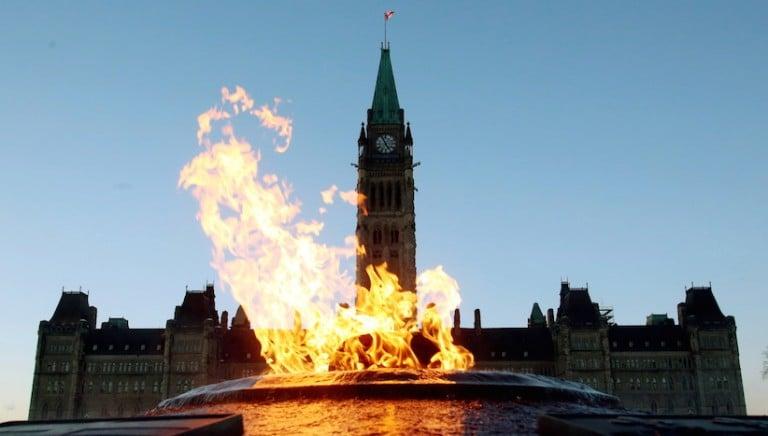For the record: Romeo Saganash on residential schools
NDP MP Romeo Saganash, a survivor of residential schools, addresses the House of Commons on reconciliation

(Fred Chartrand/CP)
Share

The report of the truth and reconciliation commission on residential schools will be released tomorrow. Shortly after question period this afternoon, Aboriginal Affairs Minister Bernard Valcourt stood in the House of Commons to deliver a statement in advance of that report.
NDP MP Romeo Saganash, who was sent to a residential school for ten years as a young boy, responded on behalf of the official opposition. Below, we’ve posted video and a transcript of Saganash’s remarks. Saganash spoke at length with Maclean’s in 2013 about his experience, his family’s experiences and the Idle No More movement—that interview was published in two parts, here and here.
Mr. Speaker, meegwetch. As I always do when I rise in this House, in this august place, I want to first acknowledge that this House sits on unceded, unsurrendered Algonquin territory of the Anishnabeg. In fact, in the spirit of true reconciliation, we should consider making that recognition—that acknowledgement—the norm whenever one rises in this House.
Allow me to thank the minister for his statement today and, with equal importance, express my gratitude to the minister for his participation in the Walk for Reconciliation: meegwetch.
As a survivor of the residential school system, I especially want to acknowledge and welcome to Ottawa the many fellow survivors who will be in town this week along with their families and friends. I pay homage to my fellow survivors, also because very few Canadians realize that since our days in residential school, the TRC events for many of us are the only moments we get together again or the only moments we see one another again to share our stories, to say something that many members may take for granted: we are still here; we made it.
People will have guessed that as a survivor it is with great anticipation that I await the release of the commission’s report tomorrow, and I want to take this opportunity to thank Justice Sinclair, Commissioner Wilson and Commissioner Littlechild for their hard work and commitment to this cause.
RELATED: Commission offers 94 ways to redress ‘cultural genocide’
After the report of the Royal Commission on Aboriginal Peoples almost 20 years ago, history—our common history, I would dare say—will provide us with yet another moment to restore harmony among the peoples of this land that we now call “Canada”. Tomorrow is that moment. Let us take a pause for a moment tomorrow and reflect on the way forward. History will have given us yet another occasion. Canadians want change. Canadians want us to seize the moment. Change and reconciliation go together.
As a survivor, I can appreciate the fundamental importance of the moment we are about to experience tomorrow. Let us all collectively seize it, and collectively commit to genuine change in our relations with the first peoples of this country. Let us set out to do what 148 years of successive governments have not managed to achieve, and that is reconciliation.
Reconciliation is about healing relationships, building trust and working out our differences. It is about redress and respect for the rights of all. Reconciliation means a meaningful commitment to change, to honesty, engaging and reconceptualizing relationships to create a future of peace, a future of justice and a future of renewed hope for all of us.
I suggest that it is not possible to conceive of reconciliation in the absence of justice. Many segments of Canadian society have been honestly willing to engage in a dialogue to obtain truth, to obtain dignity and, above all, reconciliation.
Today, and into our shared future, we must continue the difficult work of building honourable relations, a fair society, and a real dialogue to which the justice and the commissioners have invited us.
The adoption of the TRC report, important though it is, would not in itself change the everyday lives of women, men, and children whose experiences it honours and gives witness to. No. For this, we need the political and constitutional commitment of not only the governments but the support and goodwill of the public, of all Canadians, to create and implement substantial and meaningful changes in co-operation, in partnership, with indigenous peoples themselves. We are all in this together.
Change is what Canadians want–and it happens that, along with my colleagues, I have come here to do exactly that: to bring that change.
Meegwetch.